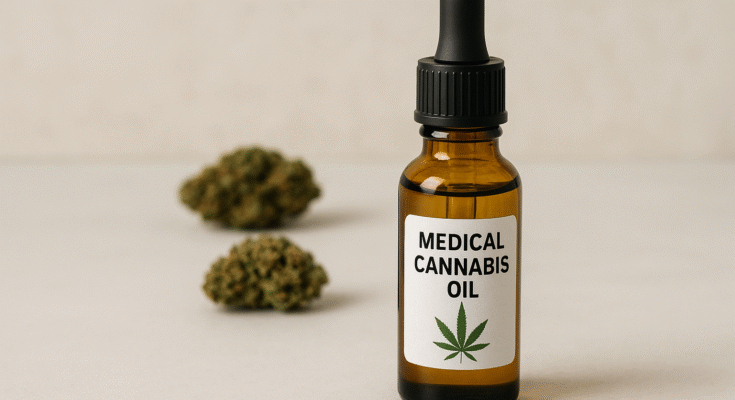A Leeds man who supplied cannabis-based products to people living with serious illnesses has been jailed for four years, despite a judge previously accepting that he acted out of compassion, not greed.
The case of Joel Cunningham exposes just how upside-down the UK’s cannabis laws really are.
From compassion to criminalisation
Back in June, 40-year-old Joel Cunningham was handed an 18-month suspended sentence after being convicted of seven offences, including conspiring to supply THC products and possession with intent to supply magic mushrooms.
At the time, Judge Neil Clark called it a “highly unusual” case, noting there was no evidence of harm to customers and that Cunningham appeared motivated by a genuine belief that the products could help people, not by profit.
But this week, the Court of Appeal decided compassion wasn’t a good enough defence.
Following a referral from Solicitor General Ellie Reeves – who argued the sentence was “unduly lenient” – three judges overturned it and handed down a four-year prison sentence, ordering Cunningham to surrender to police by Wednesday afternoon.
“It is not accepted that any intention to supply Class A drugs for medicinal rather than recreational purposes would serve to decrease the sentence significantly.”
— Solicitor General Ellie Reeves
What the police found
When police raided Cunningham’s home in October 2021, they found a small operation producing cannabis oils, vapes, and creams, alongside £7,748 in cash, luxury watches, a CS spray canister, and about 1.5 kilograms of magic mushrooms.
While there was no evidence he had actually sold the mushrooms, the jury ruled he intended to.
The case has sparked fierce public support.
A petition backing Cunningham gained over 4,400 signatures, with many saying he had helped them manage chronic pain, severe epilepsy, and even life-threatening conditions when conventional treatments failed them.
The bigger problem
Although medical cannabis has been legal on prescription in the UK since 2018, only a handful of NHS prescriptions have ever been issued.
Meanwhile, around 60,000–80,000 people access cannabis through private clinics, and an estimated 1.8 million people still use it illegally for medical reasons.
If Cunningham had run his operation under the banner of a private clinic, with the right paperwork, he could likely have sold the same products legally.
Instead, it’s clear he’s been made an example of.
📍 Want to know your rights?
If you want to access medical cannabis legally in the UK, we’ve put together a full step-by-step guide:
Read it here → How to Get Medical Cannabis in the UK
Or sign up to our free newsletter below, and we’ll send you our guide to accessing medical cannabis in the UK.




